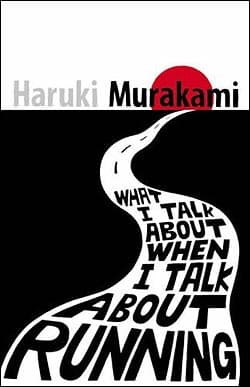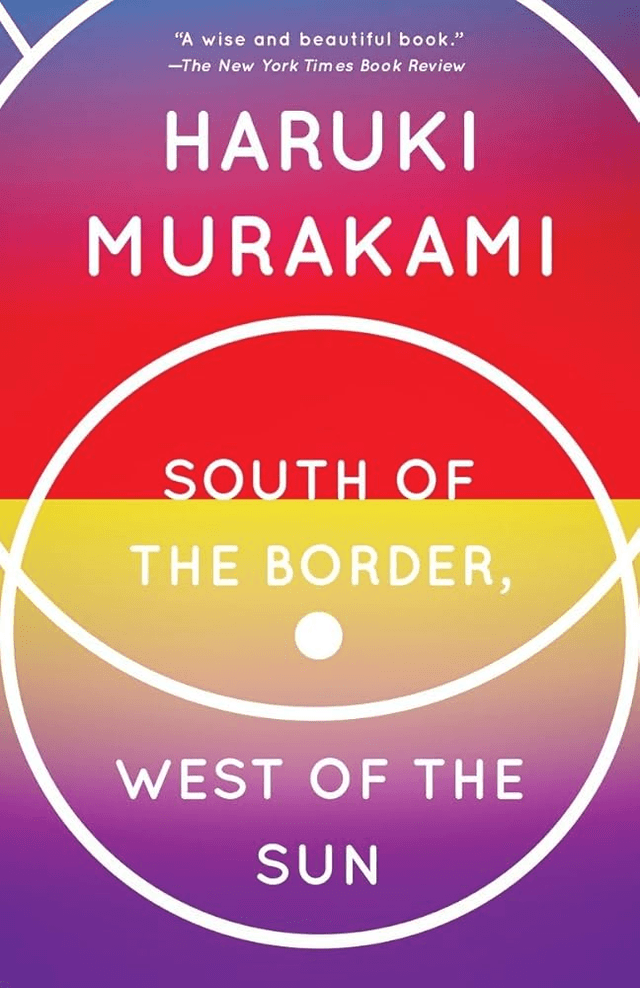What I Talk About When I Talk About Running vs. South of the Border, West of the Sun
What I Talk About When I Talk About Running
What I Talk About When I Talk About Running is a memoir by Haruki Murakami where he talks about two things that define a big part of his life: running and writing. Murakami didn’t always plan on being a novelist. He was running a jazz bar in his twenties when, while watching a baseball game, he suddenly thought, “I could write a novel.” He gave it a shot, it worked out, and he eventually sold his bar to focus on writing full-time. But sitting at a desk all day, smoking and not moving much, wasn’t doing his health any good. That’s when he picked up running. For Murakami, running is more than just exercise—it’s part of his routine and, in a way, a metaphor for writing. Both take endurance. Both are long hauls where you push yourself day after day, even when you don’t feel like it. The book follows him as he trains for marathons, competes in triathlons, and grapples with the slow decline of his physical abilities as he ages. He talks a lot about acceptance—accepting getting older, accept...
South of the Border, West of the Sun
Hajime has arrived at middle age with a loving family and an enviable career, yet he feels incomplete. When a childhood friend, now a beautiful woman, shows up with a secret from which she is unable to escape, the fault lines of doubt in Hajime’s quotidian existence begin to give way. Rich, mysterious, and quietly dazzling, in South of the Border, West of the Sun the simple arc of one man’s life becomes the exquisite literary terrain of Murakami’s remarkable genius.


Reviews
Reviewed on 2/28/2024
I read this book when I first started running long distance. I was living in Chiang Mai and I'd go this huge park a couple of times a week and just run loops around the lake. At the end of my run I'd grab a milk tea and a banana bread from a local coffee shop and just read a few pages. Great memories of many chill evenings, running and reading about running.
Reviews
| Item | Votes | Upvote |
|---|---|---|
| Easy read | 1 | |
| Motivating | 1 | |
| Peaceful | 1 |
| Item | Votes | Upvote |
|---|---|---|
| No cons yet, would you like to add one? | ||
| Item | Votes | Upvote |
|---|---|---|
| Thoughtful exploration of memory and desire | 1 | |
| Engaging, well-developed characters | 1 |
| Item | Votes | Upvote |
|---|---|---|
| Slow-paced narrative | 1 | |
| Ambiguous ending | 1 | |
| Limited action, heavy on introspection | 1 |
Frequently Asked Questions
'What I Talk About When I Talk About Running' by Haruki Murakami offers a reflective and motivational narrative centered around running and its impact on the author's life and writing. This book is easy to read and peaceful, making it suitable for readers who enjoy introspective and motivational stories. On the other hand, 'South of the Border, West of the Sun' delves into memory and desire, with engaging and well-developed characters. However, it features a slow-paced narrative and an ambiguous ending, which might appeal to readers who appreciate deep, introspective literature. Both books have their merits, but 'South of the Border, West of the Sun' might be more aligned with someone who enjoys a thoughtful exploration of internal experiences.
'What I Talk About When I Talk About Running' is more motivational as it shares Haruki Murakami's personal journey with running and how it has positively influenced his life and work. The book is filled with themes of perseverance, discipline, and the joy of running, making it an inspiring read for those seeking motivation. In contrast, 'South of the Border, West of the Sun' is more focused on the exploration of memory and desire, and its narrative is introspective and slower-paced, which might not provide the same level of motivation.
'South of the Border, West of the Sun' features more engaging and well-developed characters. Haruki Murakami intricately explores the complexities of the protagonist Hajime and his interactions with others, making the characters feel rich and multi-dimensional. 'What I Talk About When I Talk About Running' is more of a personal memoir, focusing on Murakami's own experiences and thoughts, which may not provide the same level of character engagement found in 'South of the Border, West of the Sun'.
'What I Talk About When I Talk About Running' is a memoir by Haruki Murakami that explores the intertwined themes of running and writing. Murakami shares his journey from running a jazz bar to becoming a novelist, detailing how running became a crucial part of his life and a metaphor for his writing process. The book reflects on endurance, acceptance of aging, and the highs and lows of both running and writing.
Pros of 'What I Talk About When I Talk About Running' include its easy readability, motivating content, and the peaceful tone of Murakami's writing. There are no cons listed for this book, indicating that readers generally find it to be a positive experience.
Haruki Murakami is a renowned Japanese author known for his unique blend of magical realism, surrealism, and themes of loneliness and existentialism. He gained international fame with novels such as 'Norwegian Wood' and 'Kafka on the Shore.' In 'What I Talk About When I Talk About Running,' he shares personal insights into his life as a writer and runner.
The writing style of 'What I Talk About When I Talk About Running' is straightforward and conversational, as if Murakami is sharing his thoughts over coffee. He often includes personal anecdotes and reflections, making the narrative relatable and engaging for readers.
In 'What I Talk About When I Talk About Running,' memorable moments include Murakami's experiences training for marathons, his reflections on aging and acceptance, and the simple joys of running, such as the satisfaction of finishing a race and enjoying a cold beer afterward. His vivid descriptions of running the original marathon route in Greece also stand out.
'South of the Border, West of the Sun' is a novel by Haruki Murakami that tells the story of Hajime, a man who has reached middle age with a loving family and a successful career, yet feels incomplete. When a childhood friend reappears in his life, bringing with her a secret, his seemingly perfect existence starts to unravel. The book explores themes of memory, desire, and introspection.
Pros of 'South of the Border, West of the Sun' include its thoughtful exploration of memory and desire, as well as engaging and well-developed characters. Cons include a slow-paced narrative, an ambiguous ending, and limited action, with a heavy focus on introspection.



















